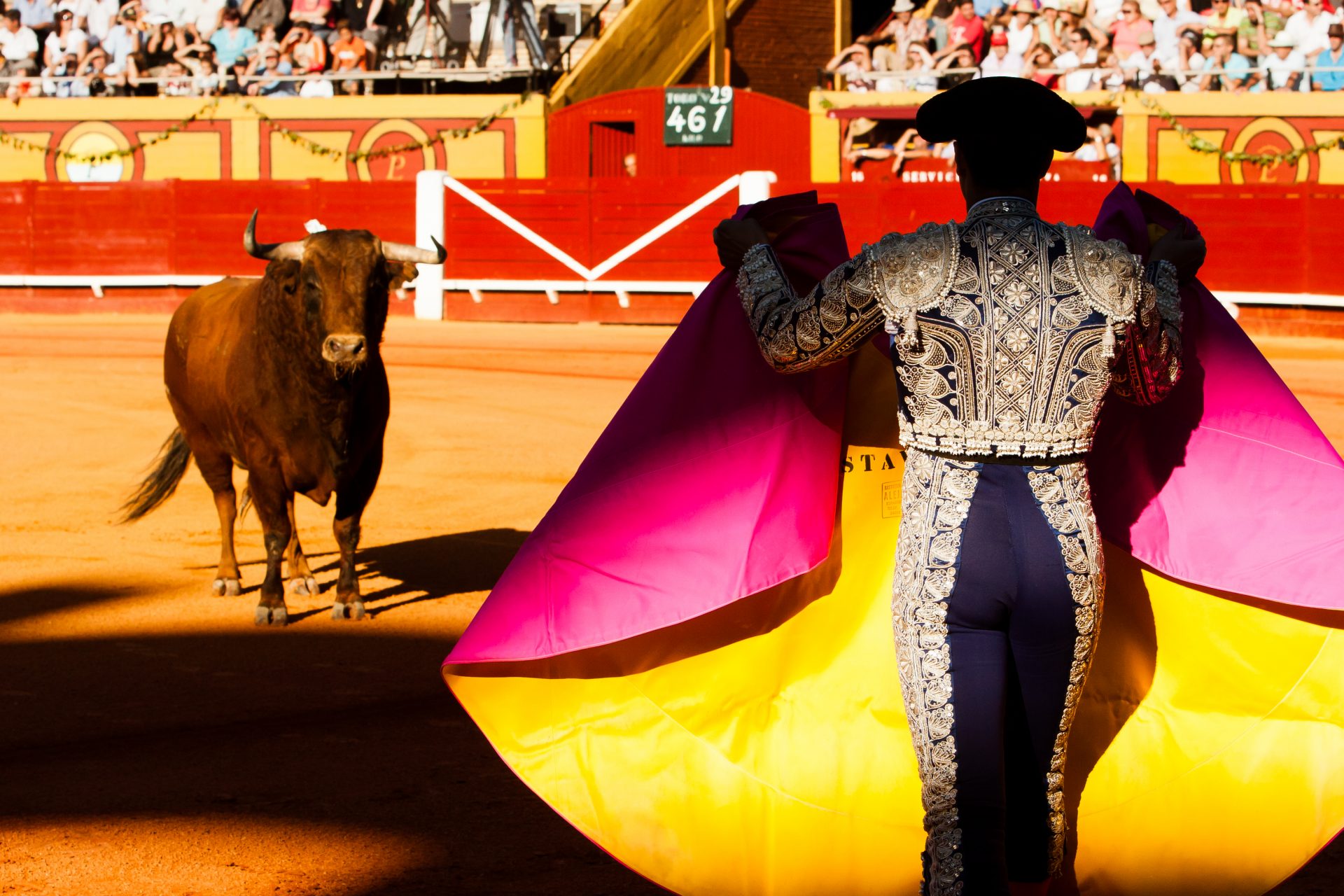A 55-year-old man bled to death from a perforated artery in his thigh last month. He had been taking part in the running-of-the bulls festival at Onda in eastern Spain, one of a number of events in which bulls are released into the streets and adrenaline junkies race among them.
The bull gored the man’s leg. He had miscalculated the risk, perhaps, but certainly knew that he was taking a gamble.
It’s not as dangerous as Squid Game, but bull run injuries are common – there are hundreds every year.
The most famous bull run takes place in Pamplona at the Festival of San Fermin in July. Around 2,000 people participate in this spectacle, known as El Encierro.
Bulls stampede through narrow streets, skittering, often falling and injuring themselves, ricocheting from the walls, beaten and prodded by the crowd. Occasionally they manage to gore or trample a runner, or the runners injure themselves falling over each other.
The odds are not as heavily stacked against them as in the bullfights that follow. There exhausted animals are tormented by horse-mounted picadors, who jab open wounds in the bulls’ necks. Finally, they are subjected to stylised torture and death at the hands of a bullfighter. And the crowd cheers.
No one could argue that bulls are treated humanely in these events. So many features are deliberately designed to cause the animals pain and to terrify and confuse them.
Perhaps the final killing is swift, but bull running, and bull fighting are activities which thrive on animal suffering.
Ernest Hemingway celebrated them, but it is hard to see why. One response is ‘Yes, but they are so central to Spanish culture and heritage’. But badger-baiting and bear-baiting were deeply engrained in British culture in the past and we have managed to get beyond this. That’s moral progress.
If you think treating bulls this way is justified because of the great courage that matadors and bull runners show, then you need to ask yourself why so much of the ritual involves weakening and disorienting the animals – surely if you want to demonstrate courage you should take on a bull at full strength, not one that has already lost pints of blood, or is running terrified from a crowd wielding sticks. But that might bring the odds closer to those in a Squid Game.
Yet if you are a meat-eater isn’t it hypocritical to object to bull running? The meat industry causes intense suffering to animals, particularly when factory-farmed, or taken to abattoirs in packed lorries.
Doesn’t the average beef-burger-heavy diet involve more cruelty to heifers or bullocks than a few bulls suffering for a short time in a run or in the ring? And in the case of the bull run, and to a lesser extent, the bull fight, the animal at least has a chance of taking one of its tormentors with it, something denied the factory-farmed animal.
Someone who eats factory-farmed meat with a clear conscience might respond that the suffering in meat production is a necessary means to an end and that it is minimised and not enjoyed by a crowd, and that’s what makes it morally tolerable. I’d dispute the first bit of this: if you are going to eat meat, it doesn’t have to be factory-farmed. There are more humane options.
And of course, you don’t have to eat meat at all, so you could avoid that cruelty altogether. But beyond animal suffering there is a side-effect of bull running that is also very disturbing for human beings and needs to be taken into account, one which makes it very different from factory farming. Large numbers of sexual assaults on women take place during El Encierro. This might be partly due to the fiesta atmosphere with crowds of drunken people packed tightly together, but some have argued that the testosterone-fuelled violence against animals is what makes men more prone to abuse women during these events.
There is certainly a well-documented link between those who are cruel to animals going on to commit violence against humans. The philosopher Immanuel Kant recognised this intuitively.
He argued that we don’t have any direct duties towards animals, but that we still shouldn’t be cruel to them because of the ways in which this very easily mutates into cruelty towards human beings.
On his view we shouldn’t torture bulls, not for the bulls’ sake, but to protect each other from what we might become if we do. I think the bulls’ suffering matters too. But Kant had a point.



